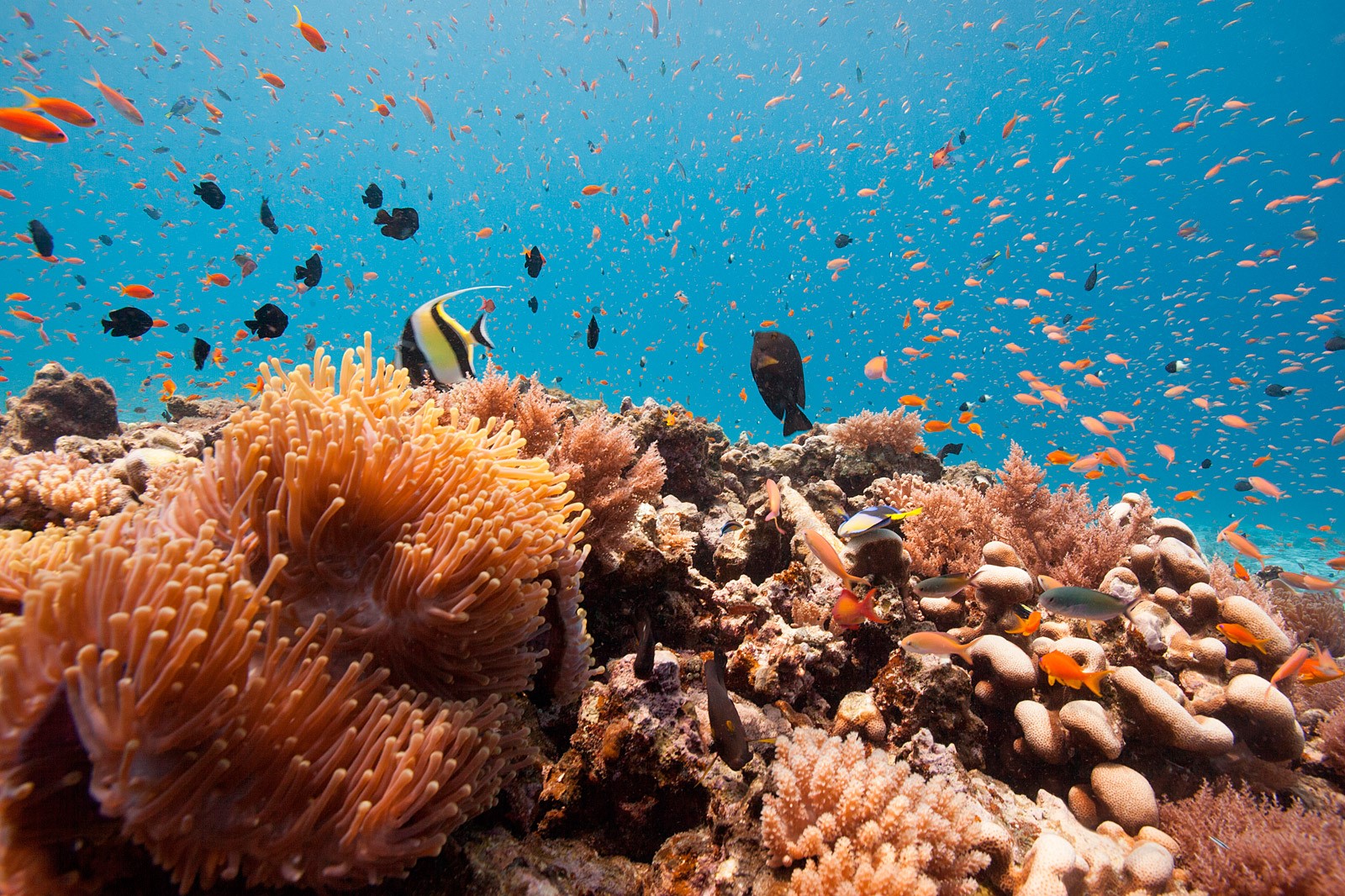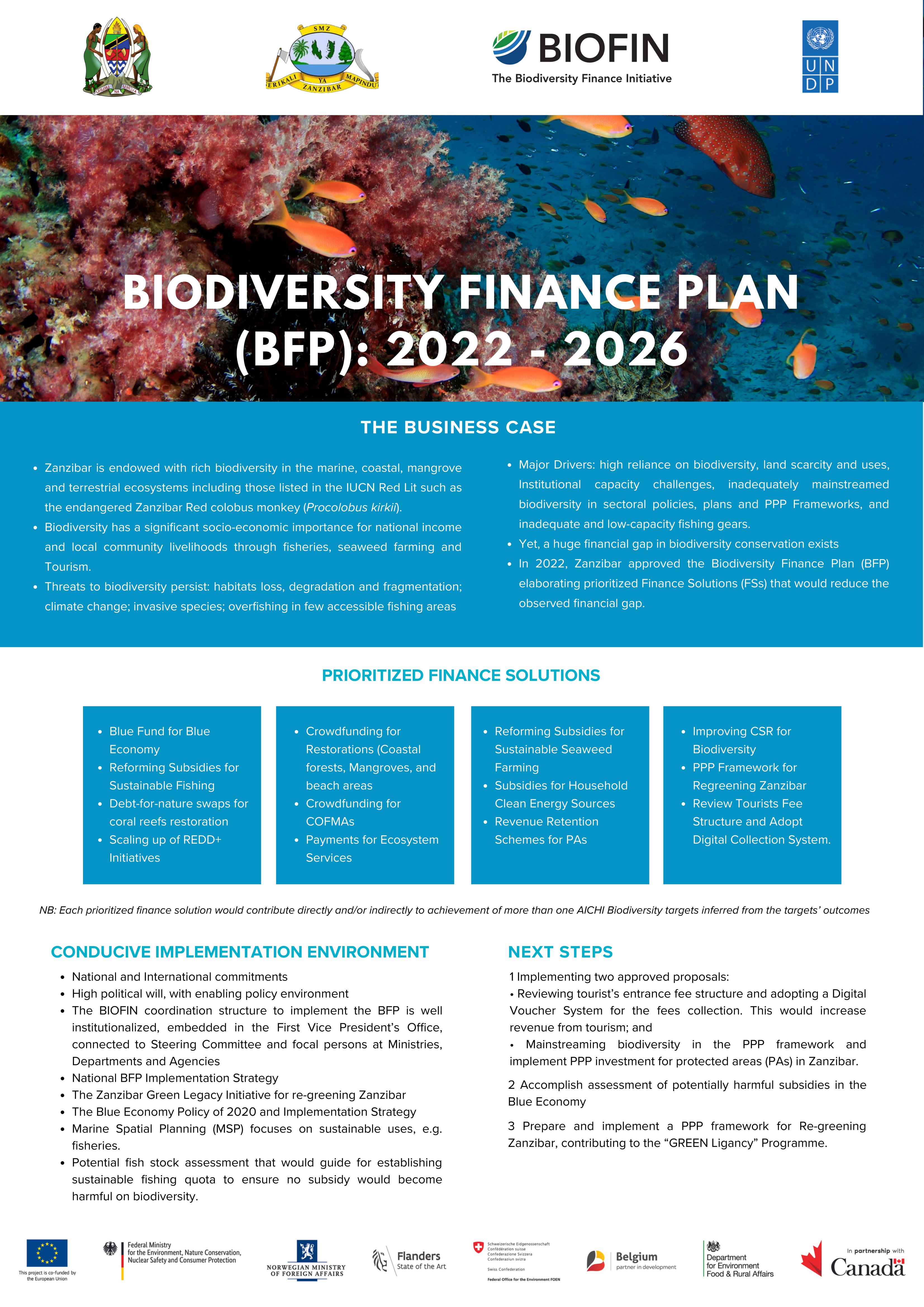
Zanzibar is a gem in the Indian Ocean, known for its stunning marine, coastal, mangrove, and terrestrial ecosystems. With a rich and varied biodiversity, it is a haven for various socio-economic activities that rely on the natural resources of the region, such as fisheries, seaweed farming, and tourism. However, the socio-ecological balance and biodiversity of Zanzibar are threatened by several factors, such as habitat loss, unsustainable harvest of biodiversity resources, climate change and invasive species. Addressing the biodiversity threats requires adequate finance resources and institutional capacities including effective policy and institutional arrangements.
The good news is that the government of Zanzibar accomplished and approved the Biodiversity Finance Plan (BFP) in 2022 to address the financial gap in biodiversity conservation. The BFP identified 13 priority finance solutions that can help reduce the financial needs of around 14 million USD per year, thus safeguarding the biodiversity in Zanzibar, in turn contributing to Convention of Biological Diversity biodiversity Targets and Sustainable Development Goals.
One of the vital finance solutions identified in the BFP is the Blue Fund for Blue Economy. The fund aims to promote sustainable conservation of the marine biodiversity and its environment. Another finance solution on reforming subsidies aims to ensure sustainable fishing, preventing overfishing. Further, the Debt-for-nature swaps finance solution intends to support ongoing coral reef restorations in Zanzibar whereas scaling up REDD+ initiative will address the climate-related threats to biodiversity.
Crowdfunding for the restoration of coastal forests, mangroves, and beach areas, and payments for ecosystem services, are other important finance solutions in the BFP. Additionally, to promote biodiversity conservation, subsidies for household clean energy sources and revenue retention schemes for Protected Areas (PAs) were also identified as viable alternatives.
All the finance solutions identified in Zanzibar are listed here: https://www.biofin.org/news-and-media/biodiversity-finance-planbfp-2022-2026
Zanzibar has created a conducive implementation environment for the BFP, depicted from a significant national and international commitments, high political will, with the appropriate coordination structure institutionalized in the First Vice President’s Office. The BFP implementation, of, those finance solutions for biodiversity conservation in the marine and coastal ecosystems, will support the marine spatial planning (MSP), and the Blue Economy Policy of 2020 and its Implementation Strategy. Likewise, the Public Private Partnership (PPP) framework will support the Green Legacy Initiative for re-greening Zanzibar.
The immediate steps for the implementation of the BFP include reviewing the tourist protected areas entrance fee structure and adopting a digital voucher system for the fees collection, mainstreaming biodiversity in the PPP framework and implementing PPP investment for PAs in Zanzibar. Additionally, an assessment of potentially harmful subsidies on seaweed farming and fisheries in the Blue Economy has started.
The BFP is a crucial and timely intervention to safeguard biodiversity in Zanzibar. It is an opportunity for the government to act towards sustainable development by promoting socio-economic activities that are not threatening biodiversity and the environment at large. Effective implementation of the prioritized finance solutions elaborated in the BFP, given the appropriate enabling environment and the necessary resources makes biodiversity conservation not only possible but achievable.
Categories
Archives
- March 2026 (1)
- February 2026 (3)
- January 2026 (3)
- December 2025 (2)
- November 2025 (5)
- October 2025 (5)
- September 2025 (2)
- August 2025 (10)
- July 2025 (9)
- June 2025 (5)
